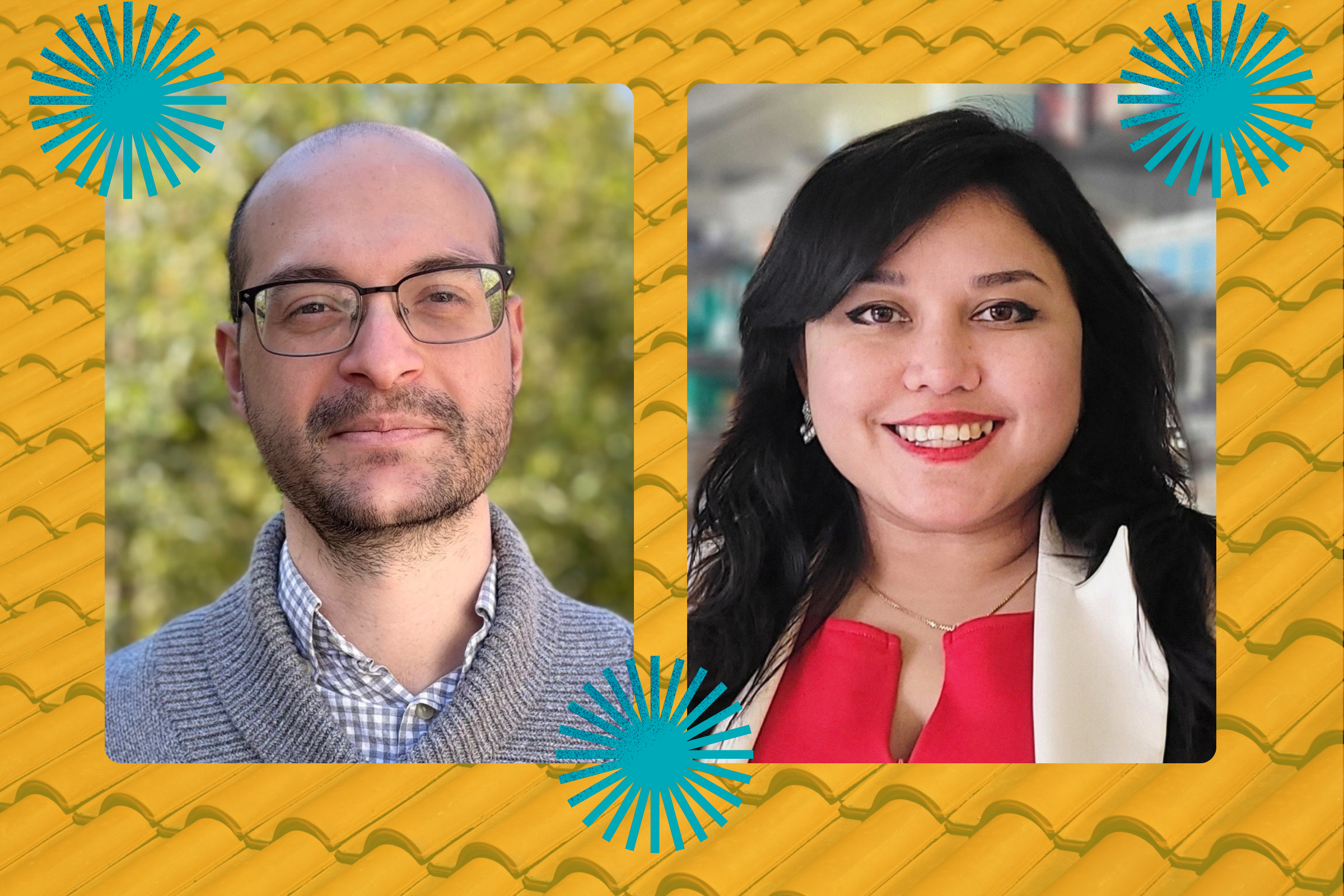Meet the Scientists Who are New to the Faculty this Spring
More about the newest faces in the College.
The College of Natural Sciences is the academic home base for six tenured and tenure-track faculty new to Texas Science this spring—and one new department chair who returns to our Department of Molecular Biosciences and academic leadership on the Forty Acres. These new faculty members have expertise in a wide range of areas, from medical applications for data science and statistics to improving interactions between computers and people, including people with impaired vision. These outstanding researchers and teachers are among the newest members of our faculty.

Edoardo Baldini
Assistant Professor, Department of Physics
Baldini specialized in experimental condensed matter physics at the École Polytechnique Fédérale de Lausanne, from which he obtained a Ph.D. in 2017. During his research activity, he implemented novel femtosecond laser spectroscopy techniques to study quantum materials. In 2017, he moved as a postdoctoral fellow to the Department of Physics of the Massachusetts Institute of Technology. There, he used ultrashort terahertz pulses and time- and angle-resolved photoemission spectroscopy to investigate open problems in the physics of strongly correlated electron systems. His current research interests include the search for novel quantum phases of matter, light-induced phase transitions, and the coherent control of collective modes. Besides science, his passions include playing classical piano, attending concerts, and exploring black and white photography.

Jay Bartroff
Professor, Department of Statistics and Data Sciences
Bartroff will join the faculty in January 2022, coming from the University of Southern California where he was a Professor of Mathematics and the Vice-Chair for Statistics. His research interests include the analysis of sequential or streaming data, large-scale multiple testing, Stein's method, optimal experimental design, pharmacokinetics/ pharmacodynamics, and a variety of biomedical applications including clinical trial design and methods for wearable alcohol biosensors. His research has been supported by the National Science Foundation, National Institutes of Health, Food and Drug Administration, and the National Security Agency.He has authored peer-reviewed publications in journals including Annals of Statistics, Bernoulli, Biometrics, Statistical Science, and Statistica Sinica, and is the author of a textbook on sequential methods published by Springer. Bartoff is also passionate about providing engaging undergraduate and graduate education, and has won awards for his teaching and grants for developing pedagogical methods. Bartoff earned a bachelor's degree in applied math from U.C. Berkeley, a Ph.D. in mathematics from Caltech, and was an NSF Postdoctoral Fellow in the Statistics Department at Stanford before joining USC.

Lief Fenno
Assistant Professor, Departments of Neuroscience and Psychiatry
Fenno's research expertise is in the development and application of novel molecular and viral methodologies for neuroscience. He has previously invented methods for controlling (via optogenetic tools with unique spectral, temporal, or signaling properties) highly defined (via novel, intersectional viral targeting approaches) populations of neurons in awake, behaving animals to understand brain function in health and disease. The ultimate goal of this work is to translate both findings and reagents to use in human patients suffering from neurological and psychiatric illnesses. Fenno grew up in Fairbanks, Alaska, completed a B.A. at Harvard University, and neuroscience Ph.D., M.D., and Adult Psychiatry Residency at Stanford University. He continued as an Instructor in the Stanford Department of Psychiatry and Behavioral Sciences and Attending Physician with the Addiction Medicine Consult Service at Stanford Hospital before joining the faculty at UT as an Assistant Professor jointly between Neuroscience and Psychiatry, where his group continues to develop and apply new methodologies and he also treats patients with substance use disorder.

Jeffrey Gross
Department Chair, Professor and Lorene Morrow Kelley Endowed Faculty Fellow, Department of Molecular Biosciences
Jeff Gross was the E. Ronald Salvitti Chair in Ophthalmology Research in the Department of Ophthalmology at the University of Pittsburgh School of Medicine, and the Vice-Chair and Director of Research and Director of the Louis J. Fox Center for Vision Restoration. Prior to his 2015 appointment there, he was a professor in the Department of Molecular Biosciences at The University of Texas at Austin, which he will lead as its chair. Gross's research focuses on eye development, disease and regeneration using the zebrafish, Danio rerio, as a model system for most of the lab's studies.

Robert Newberry
Assistant Professor, Department of Chemistry
Newberry studies the chemical and cellular determinants of protein structure. His research combines approaches from chemical biology, biophysics, and genetics to reveal the molecular details of processes that drive Alzheimer's and Parkinson's diseases. An alumnus of the college (B.S. Biochemistry, 2011), Newberry received his Ph.D. from the University of Wisconsin–Madison and completed his postdoctoral training at the University of California, San Francisco, where he received the NIH Pathway to Independence Award.

Layla Parast
Associate Professor, Department of Statistics and Data Sciences
Parast will join the Statistics and Data Sciences faculty in January 2022. Currently she is a senior statistician at the RAND Corporation and co-director of the Center for Causal Inference. She is the principal investigator of an R01 from the National Institute of Diabetes and Digestive and Kidney Diseases that focuses on developing novel nonparametric statistical methods to assess the value of surrogate markers of diabetes using data from the Diabetes Prevention Program Outcomes Study. Her substantive research at RAND is focused on evaluating patient experience, developing and testing quality measures in a variety of settings, investigating process-outcome relationships, assessing quality of care, evaluating substance use screening tools in a pediatric setting, and examining the effects of interventions aimed at reducing substance use and risky behaviors. Parast earned her Ph.D. in biostatistics from Harvard University in 2012.

Amy Pavel
Assistant Professor, Department of Computer Science
Pavel's research leverages the connections between communication mediums (e.g., spoken audio, multiple video sources, text transcripts) to enable people to fully participate in and better work with digital communication. As a systems researcher in Human-Computer Interaction, she embedded machine learning technologies (e.g., NLU, NLG) into new human interactions that she then deployed to test. Using her systems, remote content creators more effectively collaborate, video authors efficiently create accessible descriptions for blind users, and instructors help students to learn and retain key points. Her long-term research goal is to make communication more effective and accessible to all. Pavel received her Ph.D. in electrical engineering and computer science from UC Berkeley and was advised by Björn Hartmann at UC Berkeley and Maneesh Agrawala at Stanford. She is a recipient of an NDSEG fellowship, a department EECS Excellence Award and a Sandisk Gold Fellowship. She did her postdoctoral fellowship at Carnegie Mellon University where she was supervised by Jeff Bigham and worked as a research scientist at Apple.



